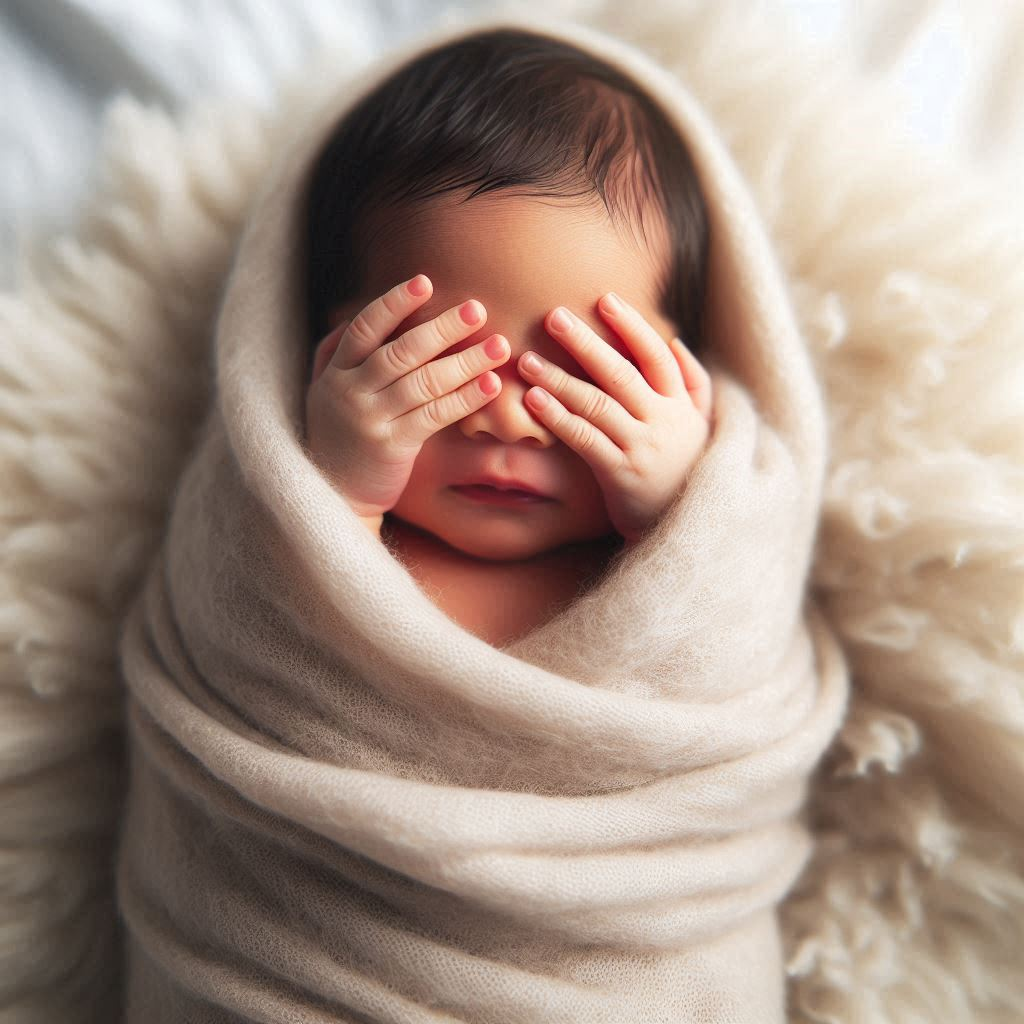Why Do Infants Rub Their Eyes?
Have you ever watched your little one rub their eyes and wondered what’s going on? As a parent, it’s normal to be curious about every little thing your baby does. Eye rubbing is a common behavior in infants, and it can mean different things. Let’s dive into this topic and uncover the mysteries behind those tiny fists meeting sleepy eyes.
Quick Answer
Infants rub their eyes for various reasons, including tiredness, eye irritation, dryness, teething discomfort, and simple curiosity. While usually harmless, excessive eye rubbing might signal an underlying issue that needs attention.
The Tired Baby Tale
Picture this: it’s been a long day of tummy time, rattles, and peek-a-boo. Your baby starts to fuss and rub their eyes. What’s happening? Well, just like us grown-ups, babies rub their eyes when they’re tired. It’s their way of saying, “Hey, I need a nap!”
Babies’ sleep patterns can be all over the place. Some might need a nap every couple of hours, while others can go longer. Keeping an eye out for these sleepy signals can help you establish a good sleep routine.
Signs Your Baby is Ready for Dreamland
- Eye rubbing
- Yawning
- Fussiness
- Decreased activity
- Looking away or zoning out
Creating a consistent bedtime routine can work wonders. A warm bath, a gentle lullaby, or a bedtime story can signal to your baby that it’s time to wind down.
When Irritation Strikes
Sometimes, your baby might rub their eyes because something’s bugging them. Their eyes are super sensitive, and even the tiniest speck of dust can feel like a boulder to them. Other irritants could be:
- Pet dander
- Pollen
- Their own hair (those adorable bangs can be pesky!)
- Soap or shampoo residue
If you notice your baby rubbing their eyes a lot, take a look around. Is it dusty? Has your furry friend been shedding more than usual? A quick clean of your baby’s environment might do the trick.
Gentle Eye Care for Your Little One
When your baby’s eyes need a bit of TLC, here’s what you can do:
- Wash your hands thoroughly
- Dampen a soft, clean cloth with warm water
- Gently wipe from the inner corner of the eye outward
- Use a fresh part of the cloth for each wipe to avoid spreading germs
Remember, baby’s eyes are delicate. If you’re worried about irritation or see any redness or swelling, it’s best to check with your pediatrician.
The Case of the Dry Eyes
Believe it or not, babies can get dry eyes too! This often happens when they’ve been awake for a while. Their little eyes work overtime taking in all the sights around them, and sometimes they forget to blink enough to keep their eyes moist.
Dry air can make this worse, especially in winter when heaters are running, or in summer with air conditioning. A humidifier can be a game-changer here. It adds moisture to the air, which can help keep those baby blues (or browns, or greens) from getting too dry.
Humidifier Tips for Baby’s Room
- Use distilled water to prevent mineral buildup
- Clean the humidifier regularly to avoid mold growth
- Keep it out of baby’s reach
- Don’t overdo it – aim for about 50% humidity
Teething Troubles
Who knew that growing teeth could make your eyes hurt? Well, babies sure know it! When those little chompers start pushing through, it can cause all sorts of discomfort, including in and around the eyes.
The nerves in our faces are all connected, so pain in the gums can sometimes feel like it’s coming from the eyes or ears. If your baby is rubbing their eyes and seems extra fussy, check those gums. You might see or feel a little tooth bud poking through!
Soothing Teething Discomfort
- Offer a cold teething ring
- Gently massage baby’s gums with a clean finger
- Try a soft, wet washcloth for them to chew on
- Ask your pediatrician about safe pain relief options
Curiosity Didn’t Kill the Cat, But It Might Make Baby Rub Their Eyes
Babies are natural-born scientists. They’re constantly exploring their world, and that includes their own bodies. Sometimes, eye rubbing is just your little one figuring out how their hands and eyes work together.
This kind of exploration is totally normal and even good for their development. It helps them understand cause and effect. “When I rub my eyes, things look different!” It’s all part of learning about their senses.
Encouraging Safe Exploration
- Provide safe toys with different textures
- Play games that involve gentle touch, like pat-a-cake
- Narrate what they’re doing: “You’re touching your eyes! Those are your eyes!”
When to Worry (and When Not To)
Most of the time, eye rubbing is no big deal. But there are times when it might signal something that needs attention. Here’s when to call the doc:
- If the eye rubbing is constant and seems to bother your baby
- If you notice redness, swelling, or discharge from the eyes
- If your baby seems to be in pain or very uncomfortable
- If the eye rubbing is accompanied by other symptoms like fever or changes in behavior
Trust your gut. You know your baby best. If something feels off, it’s always okay to check with your pediatrician.
A Personal Tale: The Case of the Mysterious Eye Rub
When my son was about 4 months old, he started rubbing his eyes like crazy. At first, I thought he was just tired all the time. But even after naps, the rubbing continued. I started to worry.
After a few sleepless nights (for both of us), I took him to the pediatrician. Turns out, he had developed a mild allergy to our cat’s dander. Who knew?
We made some changes at home – vacuumed more often, kept the cat out of his room, and used an air purifier. Within a week, the eye rubbing had almost completely stopped. It was a reminder that sometimes, the simplest explanation isn’t always the right one.
Wrapping It Up: Your Eye-Rubbing Action Plan
Alright, let’s recap what we’ve learned about why infants rub their eyes and what you can do about it:
- Watch for tiredness: If eye rubbing comes with yawning and fussiness, it’s probably time for a nap.
- Check for irritants: Keep the air clean and free from dust, pet dander, and other potential eye-botherers.
- Monitor moisture: Use a humidifier if the air is dry to prevent dry eyes.
- Be aware of teething: Eye rubbing plus drooling and crankiness might mean a tooth is on its way.
- Encourage safe exploration: Let your baby discover their body, but keep those little nails trimmed to prevent scratches.
- Know when to call the doc: Persistent rubbing, redness, or discharge are signs it’s time for a check-up.
Remember, every baby is unique. What works for one might not work for another. It’s all about getting to know your little one and their quirks.
Your Next Steps
Now that you’re armed with knowledge about why infants rub their eyes, here’s what you can do next:
- Start a sleep log to track your baby’s eye-rubbing and sleep patterns
- Do a quick check of your home for potential eye irritants
- Talk to other parents about their experiences with baby eye rubbing
- If you’re concerned, don’t hesitate to reach out to your pediatrician
Understanding your baby’s behaviors is a journey. Every day brings new discoveries – for them and for you. So keep watching, keep learning, and enjoy every moment of this amazing adventure called parenthood!

Jessica Winter is a passionate parenting blogger with two years of experience guiding new and seasoned parents through the joys and challenges of raising babies. Her insightful posts blend personal anecdotes with expert advice to offer a warm and practical perspective on modern parenting.

